This site was launched on February 19, 2021, near the end of the first year of the COVID-19 pandemic.
We aim to provide a user-friendly tool to visualize the impact that the pandemic is having on rental housing stability within cities in the US through the lens of rental housing providers. Tenants face particular challenges in the face of disasters, and those challenges have been amplified in the current pandemic. Post-disaster stability requires that landlords remain solvent and interested in continuing to provide rental housing. We anticipate that the study findings will contribute to the national conversation about rental housing access and stability and will assist local government officials and planners in evaluating existing disaster policy responses and developing new and innovative rental housing stability strategies.
Current Contributors
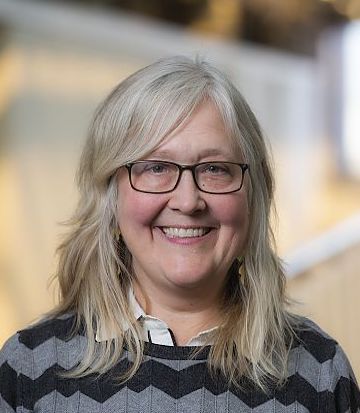
Jane Rongerude
Dr. Rongerude is an Associate Professor in the Department of Community and Regional Planning at Iowa State University where she teaches classes in planning theory, housing, community planning, and planning and social justice. Her research investigates how housing policy and planning practices shape and maintain poverty places and contribute to or inhibit opportunities for community transformation. Within this frame, her work addresses a range of topics including rental housing instability, housing and disasters, the redevelopment of public housing, and community engagement practices. Her research has been published in the Journal of Community Practice, Planning Theory and Practice, Urban Affairs Review, and the Journal of the American Planning Association. She earned her MCP and PhD in City and Regional Planning from the University of California at Berkeley.

Daniel Kuhlmann
Daniel Kuhlmann, PhD is an Assistant Professor of Real Estate and Planning at the University of Arizona. Before coming to Arizona, he was an Assistant Professor of community and regional planning at Iowa State University, where he helped launch a new Master of Real Estate Development degree. He has an MA and Ph.D. in Community and Regional Planning from Cornell University and a BA in International Relations from Carleton College. In his research, he examines issues related to housing, zoning, and real estate development. As part of the Rental Property Research Consortium, Daniel is helping to design and analyze the landlord's survey and working to develop new methods to identify rental properties from existing data sources.
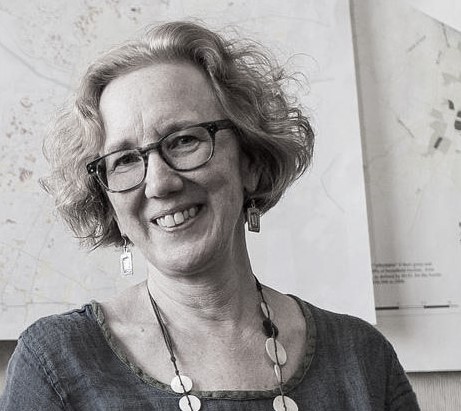
Elizabeth Mueller
Elizabeth Mueller is an Associate Professor of Community and Regional Planning and Social Work. She holds master's and doctoral degrees in City and Regional Planning from the University of California, Berkeley. Dr. Mueller is primarily interested in questions of social equity in cities and regions. Her research focuses on social and political inclusion in cities, and how city planning and development policies shape the quality of life and opportunities available to historically vulnerable residents and communities. Her current work focuses on these topics through investigation of tensions between housing and planning goals in current strategies for building sustainable cities. Her work has appeared in both academic and popular publications. Past and current research funders include the National Science Foundation, the US Department of Housing and Urban Development as well as many national and local foundations. Dr. Mueller is also an active participant in state and local affordable housing policy discussions, serving on various state and local task forces concerned with housing issues.

Jake Wegmann
Jake Wegmann joined the faculty of the University of Texas at Austin in 2014 after completing his PhD at the University of California at Berkeley. His research lies at the intersection of housing unaffordability, land use regulation, and housing production with a focus on fast-growing markets. He teaches graduate-level courses on quantitative methods, real estate development, real estate finance, survey methods, and research design. At present he is at work on a book titled From Enclave to Haven: New Futures for the North American Single-Family Block. Before entering academia, Jake worked for for-profit and nonprofit affordable housing developers in Denver and San Francisco. He lives in Austin with his wife and daughter and in his spare time enjoys cycling and spending time in the great outdoors.

Kris De Brabanter
Kris De Brabanter is an Associate Professor in the Department of Statistics and the Department of Industrial and Manufacturing Systems Engineering at Iowa State University. Dr. De Brabanter received his Master's degree in Industrial Sciences in 2005 from Erasmus Hogeschool Brussel. In 2007, he received a Master's degree in Electrical Engineering (option data mining and automation) from Katholieke Universiteit Leuven (KU Leuven). He obtained his PhD from KU Leuven in 2011. His primary research interests include mathematical statistics, nonparametric regression, analysis of big data sets, machine learning, model selection methods, density estimation, and nonparametric inference.

Samuel Mindes
Samuel Mindes is an Assistant Professor in Rural Sociology at Iowa State University. He holds both an MA and a PhD in sociology from Michigan State University and completed his postdoctoral training at the University of Idaho. Dr. Mindes primarily focuses on community development, rural inequality, and social research methodology. His research projects investigate housing inequality, the digital divide, disaster preparedness and impacts, and water justice. His research has been funded by USDA’s National Institute of Food and Agriculture and the National Science Foundation. In 2024, Dr. Mindes served as a Research Fellow with the North Central Regional Center for Rural Development. His work has been published in several journals, including Rural Sociology, Journal of Small Business Management, Ethnicities, and Sociological Perspectives.

Taylor Cook
Taylor is a PhD student in Community and Regional Planning at the University of Texas at Austin. Her research focuses on housing and homelessness. Before enrolling at UT, Taylor was a Project Manager for the City of Austin then at the University of Texas Dell Medical School where she specialized in the research, design, and testing of health and social service interventions. Prior to joining the City, she was the founding Executive Director of Farmshare Austin and a healthcare policy consultant for the Texas Health and Human Services Commission. Taylor is currently an Officer on the Board of the Texas Homeless Network and is active in local and statewide homeless advocacy. She has a B.A. in Economics and Political Science from Hollins University and an M.A. in Economics and Public Administration from the University of Montana.
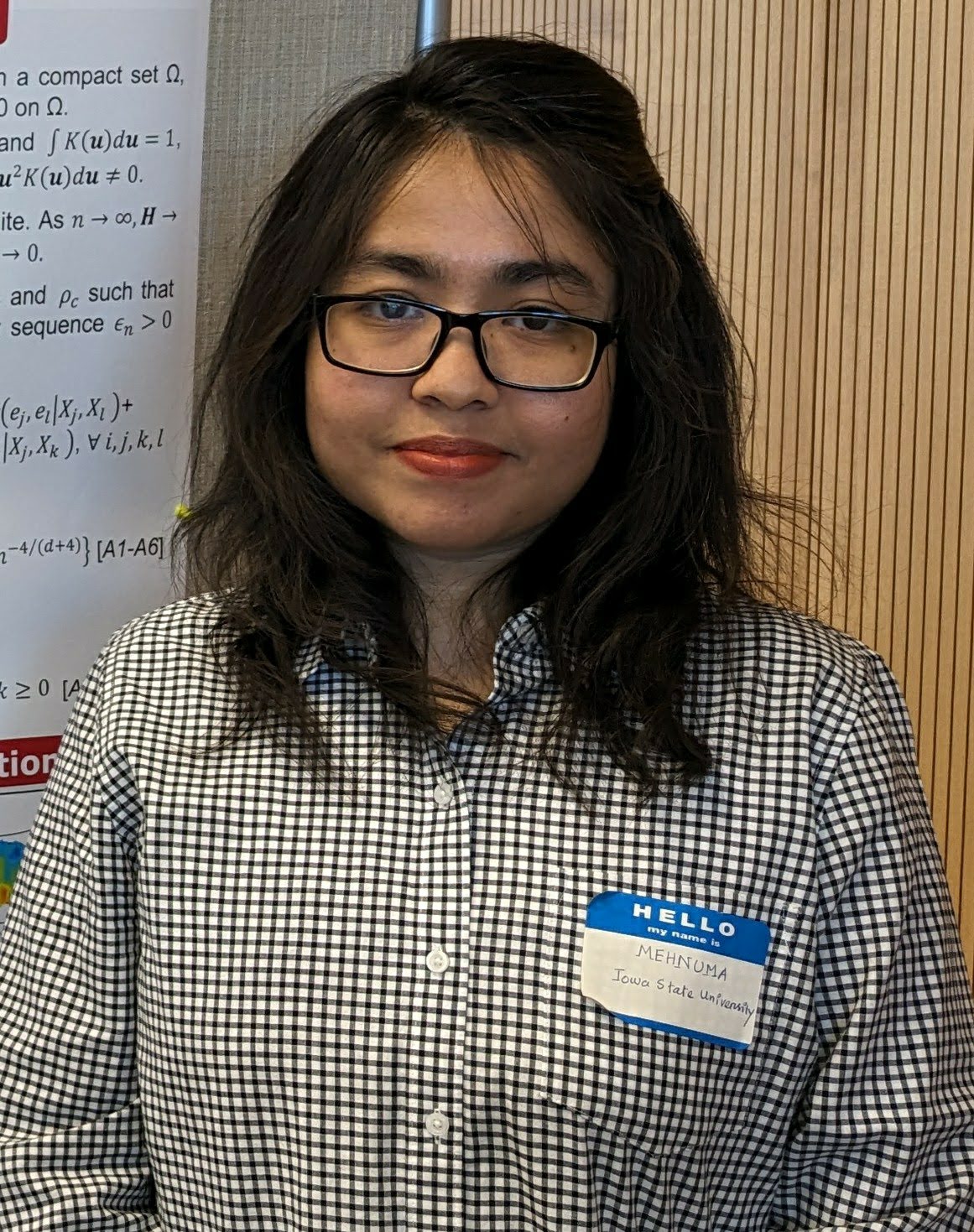
Mehnuma Tabassum
Mehnuma Tabassum is a PhD student in Industrial Engineering at Iowa State University. Her research interests include design for remanufacturing, design under uncertainty, nonparametric statistics, and statistical machine learning. Mehnuma is also interested in web design and development. She holds a B.Sc. and M.Sc. in Industrial and Production Engineering from Bangladesh University of Engineering and Technology.
Undergraduate Researchers

Laurel Waterman
Laurel Waterman is an undergraduate student in Community and Regional Planning with a minor in Sustainability. She has interests in housing, land use, community development and engagement, and sustainability. She has learned about the importance of affordable, stable rental housing and is interested in learning more about the decisions of residential rental property owners.

William Seemiller
William Seemiller is a sophomore at Iowa State's Community & Regional Planning program. He is originally from St. Louis, MO, and with his work in city planning, he hopes to understand how we can make changes in our neighborhoods for the betterment of our cities through housing, environmentalism, and design.
Past Members

Biswa Das

Laura DuPuis
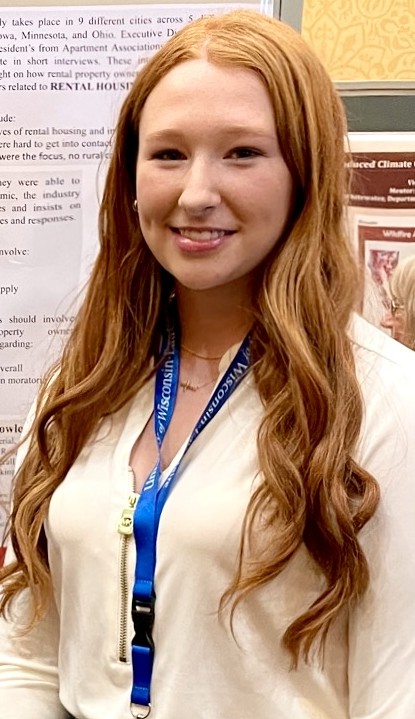
Kristen Hoss
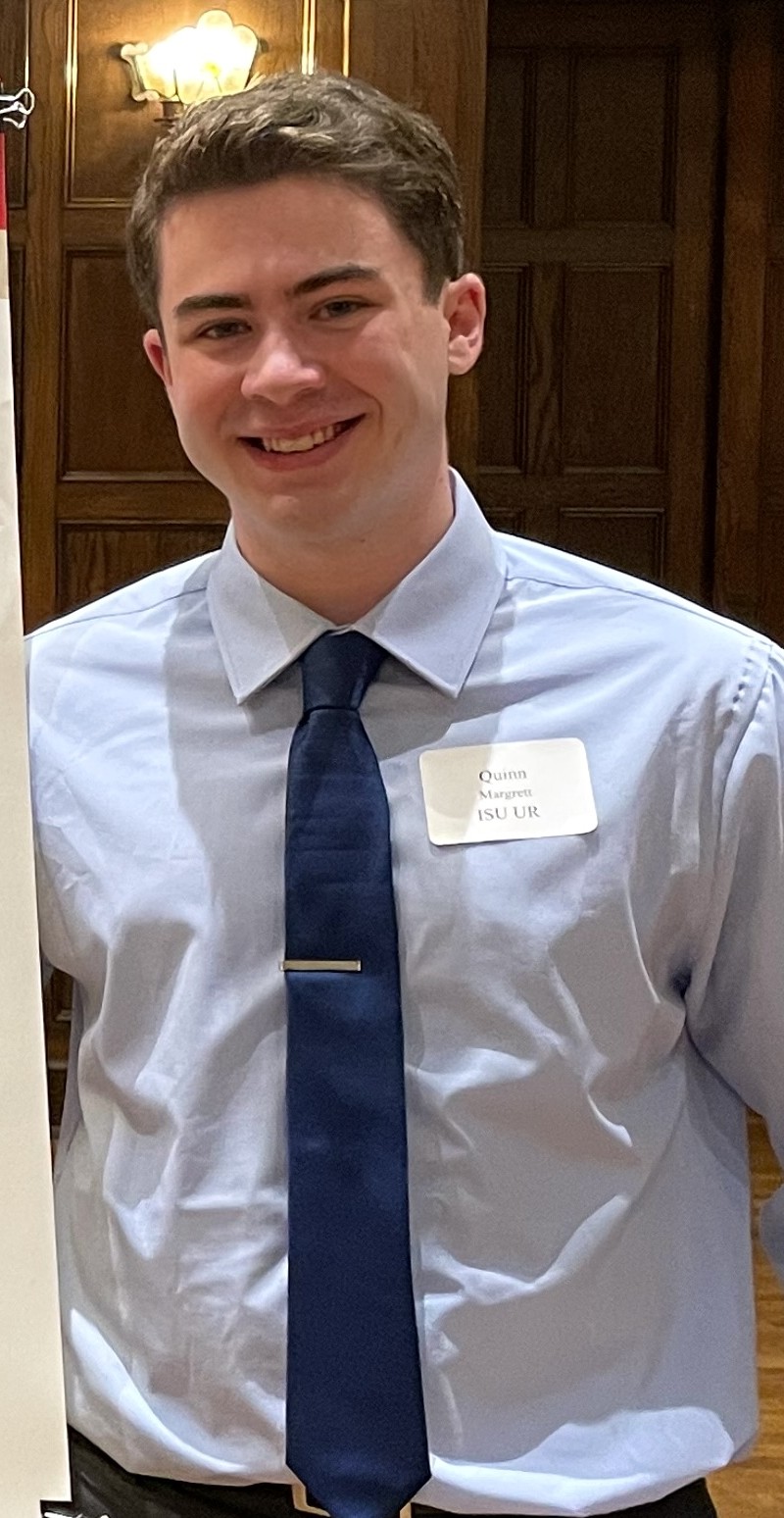
Quinn Margrett

Lin Quan

Lily Wang
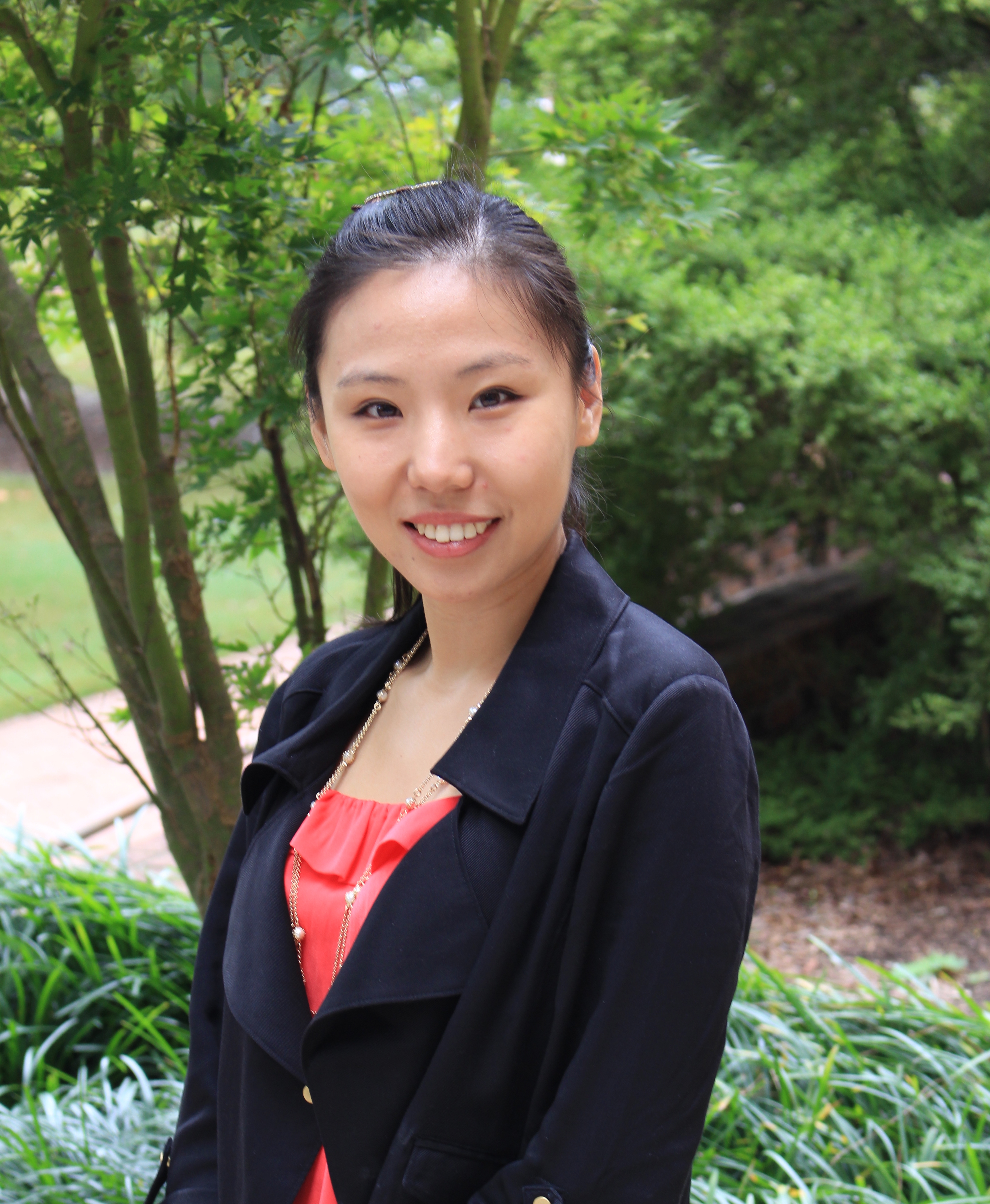
GuanNan Wang

Yuchun Wang

Addison Williamson

Wanying Zhu
Suggested Citation
Rongerude, J., Das, B., Kuhlmann D., Quan, L. and Wang, L. (2021). Keeping shelters in place: Understanding landlord decision-making during the COVID-19 Pandemic. https://covidrental.design.iastate.edu
Disclaimer
This disclaimer informs readers that the analysis, views, thoughts, and opinions expressed in the site belong solely to our research group, and not necessarily to the contributors' employers, organization, government agency, committee, or other group or individual.
Note: Our research and data will be continuously improved. Thank you very much for your time and support.Last Update:




